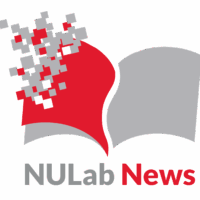A new report from the COVID States Project, a collaboration between researchers at Northeastern, Harvard, and several other institutions, has been featured in both the Boston Globe and NPR. This report, “Prospects for Vaccinating America’s Youth,” examines patterns of vaccine hesitancy in parents. Key findings are that the gap between attitudes in fathers and mothers has widened, with more than 25% of mothers saying that they are “very unlikely” to have their children vaccinated; that divides based on education, political affiliation, and income have also widened; and that parents of teenagers are less resistant to vaccination than parents of small children.
NULab Co-Director David Lazer, was interviewed by Steve Inskeep for NPR about the report. Lazer noted that there is a “a strong relationship between people’s decision for themselves as for their children” and explained that one of the “key takeaways” from the report is that communication is essential in ensuring that all populations have access to information about health and safety. Lazer observed that we are now moving from a “fast lane” approach, in which many people were attempting to get vaccines, to a “slow lane” period in which “the people who need to get vaccinated need to have conversations” with those that they trust.
Matthew Simonson, a PhD student in Network Science and former NULab Fellow, was featured in an article by the Boston Globe about the report. Simonson considered several possible explanations for the greater hesitancy among mothers than fathers: “mothers are more used to thinking about this issue beforehand and thus are attuned to the concerns that are circulating out there — and perhaps more plugged into the misinformation about the vaccine that’s on the web” and “it’s also possible that some of this misinformation is deliberately targeting mothers because mothers are perceived to be the primary decisionmakers.”
The COVID States Project has now released 50 reports on a wide range of key topics related to the pandemic, and will continue conducting research that can support informed decision making in these rapidly-shifting times.


